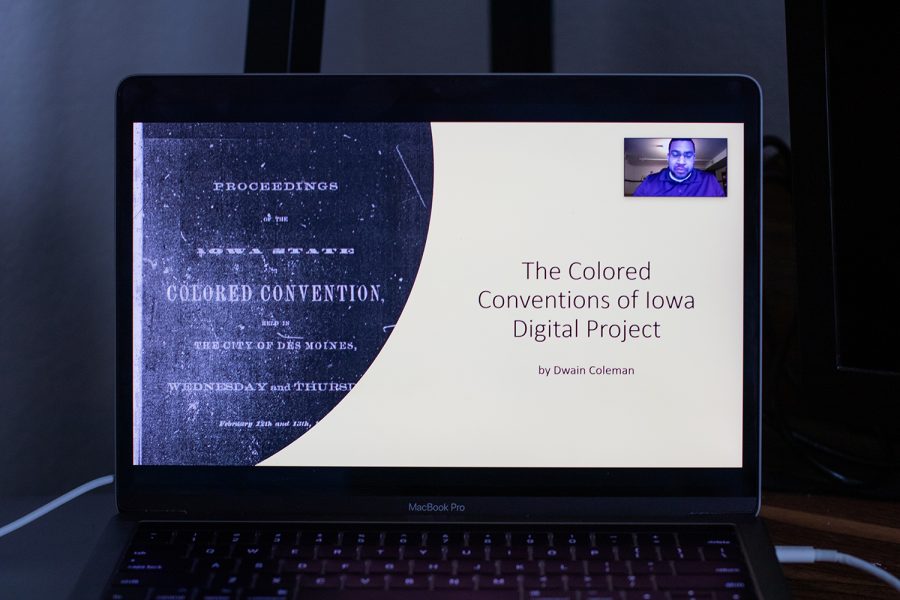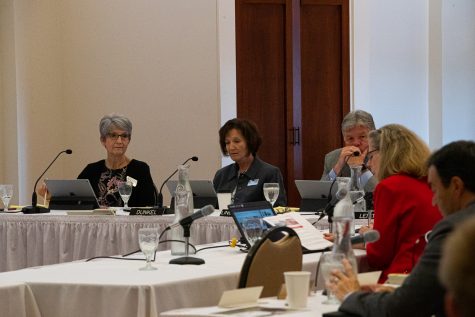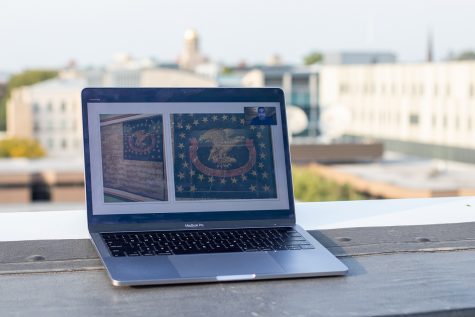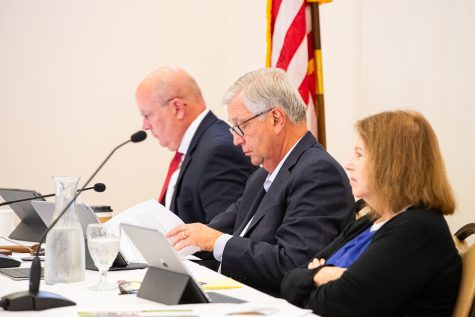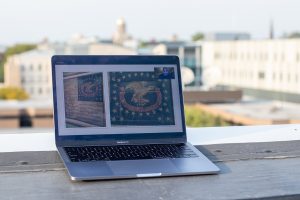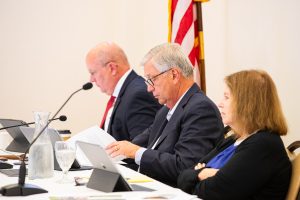CLAS hosts webinar discussing past and present racial and social justice movements in Iowa
To carry on with its theme for the 2020-2021 academic year of pursuing racial justice, CLAS will be hosting a series of webinars to challenge the UI community to become aware of and change their implicit biases
The College of Liberal Arts and Sciences Racial and Social Justice Meeting was held over Zoom on September 23rd. The meeting included a few presentations and covered racial justice programs in Iowa’s past and present.
September 24, 2020
The University of Iowa’s College of Liberal Arts and Sciences hosted a webinar on Wednesday, covering social justice movements as part of its theme year of focused racial equity.
The college hosted the webinar via Zoom, which was moderated by Adjunct Assistant Professor John McKerley.
Many attendees spoke during the webinar, including UI staff as well as other Iowans who are leaders in conversations related to racial injustice and promoters of positive social change.
Dwain Coleman, a founding member and co-director of Iowa Colored Conventions Digital Project, spoke during the seminar about Black political activism in the state during the nineteenth century.
Coleman said that in the early 1800s, Iowa had some of the strictest racist laws in the U.S. — codes which discouraged Black migration to the state.
During this time, he said, there were many examples of Black advocacy around Iowa. At the Iowa Colored Convention in 1857, those in attendance called for the removal of the Iowa Exclusionary Act of 1851 and the Black laws from the state constitution.
RELATED: CLAS announces Diversity, Equity, and Inclusion Launch for 2020-21
Iowa Women’s Archives Graduate Assistant Erik Henderson thanked the Iowa Freedom Riders and Des Moines Black Lives Matter — two of many groups advocating for racial and social change — for their ongoing activism.
Henderson said the groups’ main focus right now is defunding local police department, and he encouraged the audience to continue to strive for positive change within their local communities, as well as at the national level.
“We need to continue our efforts and be vocal about our demands,” Henderson said.
Janet Weaver, also from the Iowa Women’s Archives, spoke about the history of migrant farm worker’s rights and protections in Iowa — including a visit Latino civil rights activist Cesar Chavez made to Davenport in 1969.
Weaver said the National Labor Relations Act of 1935, was racist, as it excluded farm workers and domestic servants from its protective labor provisions – most of whom were a part of a racial minority and/or women.
Nick Salazar, Iowa state director of League of United Latin American Citizens, said there are many Latinx families today who continue to migrate to industry areas such as farms and meatpacking facilities.
RELATED: University of Iowa Lecture Committee hosts “1619 Project” creator Nikole Hannah-Jones
The director added that these industries treat migrant workers poorly, valuing profit over workers.
“[These are the] most dangerous jobs in the country,” Salazar said. “There’s not one other job that comes close.”
Director Jennifer Sherer of the UI Labor Center said it is important to note that labor movements often intersect with other political campaigns, led by what she called “ordinary people responding in astonishing ways.”
“Workers have often been on their own,” Sherer said. “Many of these folks don’t know their rights, which makes matters worse.”
During the closing portion of the webinar, the moderator asked if the Midwest has its own story that makes it distinct.
Heather Cooper, a UI graduate student, put it simply: “Iowa has a narrative of absence.”



